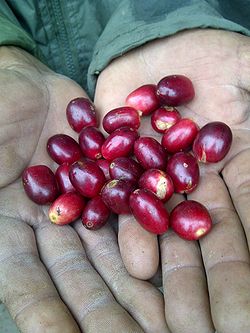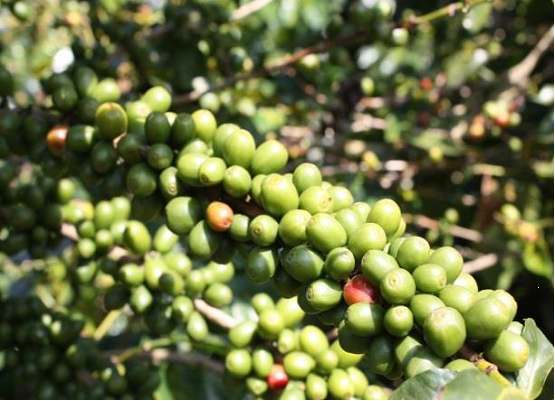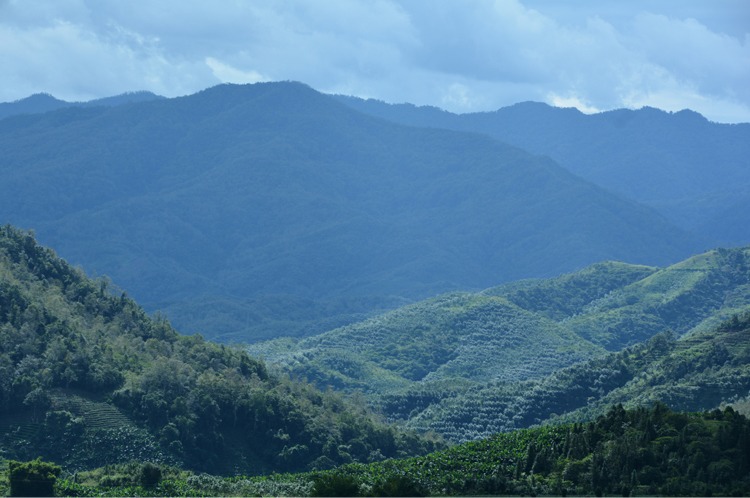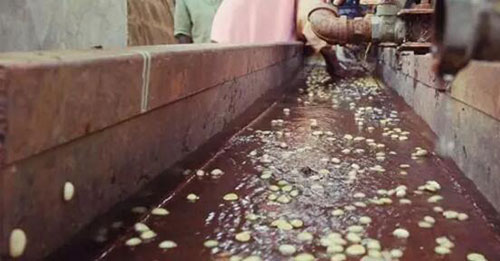Isopiaya Gaschef Biloya (Biloya Cooperative) Coffee Bean Flavor introduction Baking suggestion
Ethiopia Yegashev Biloya (Biloya Cooperative) G2
Beloya or (Biloya) two kinds of names are used, which is correct, after searching for Google, I am not quite clear, two kinds of information are available ~ but these are not important, delicious is the king.

Coincidentally, Biloya and Kochere are in the same producing area, and coffee varieties are also Heirloom. If you think that these two kinds of coffee will taste exactly the same, then you are very wrong. The characteristics of these two branches will certainly subvert your taste buds and opinions.
Biloya (Biloya Cooperative) is a washed batch of beans directly exported by YCFCU. Since the implementation of the ECX system in 2008, most raw coffee beans have been sold through this pipeline, but cooperatives are not subject to this restriction, and they can directly contact / negotiate prices and export with foreign soybean buyers.

The Yegashev Coffee Farmers' Cooperative Union (Yirgacheffe Coffee Farmers Cooperatives Union), known as YCFCU for short, was founded in 2002. At present, the organization has 24 junior cooperatives containing about 50, 000 farmers, of which the Biloya Cooperative is a member.
The Biloya Cooperative was founded in 1976 in the Kochere (Kochel) producing area of Yegashev, with more than 1600 farmers engaged in related industries with an annual output of more than 800m tons. The planting method is a typical courtyard coffee Garden Coffee~ (the average planting area per household is only about 0.7ha, which is equivalent to what the Taiwanese say is about 7% of the land). At the same time, plantains and other crops are planted for food and shade purposes, and ripe coffee cherries are transported by farmers to their respective cooperatives in exchange for reward.

The Biloya Cooperative insists on not using chemical fertilizers and chemicals, operates sustainably in an environmentally friendly way and has obtained fair trade certification.
Similarly, the bean scored more than 90 points on Coffee Review, a well-known coffee evaluation website.
After 1 explosion, + 30 seconds 60 seconds

Light aroma, taste soft and distinct citrus-like acidity in the mouth and soon turn to fresh sweetness but not too sweet. it feels natural, gentle / smooth / sweet, Body is medium to thin, after drinking, there is a continuous gushing out of the throat, a very comfortable feeling.
People who like the sour taste can drop the beans immediately at the end of the explosion.
People who like aroma and do not like sour fruit can drop beans immediately when Touch explodes.
Important Notice :
前街咖啡 FrontStreet Coffee has moved to new addredd:
FrontStreet Coffee Address: 315,Donghua East Road,GuangZhou
Tel:020 38364473
- Prev

Introduction to Coffee Flavor characteristics of Monte Carmela (Monti Camilla Manor) in Costa Rica
Costa Rica Monte Carmela (Monti Camilla Manor) Honey Costa rica is located in Central America, bordering Nicaragua in the north and Panama in the south. Seven countries in Central America (Belize / Costa Rica / El Salvador / Guatemala / Honduras / Nicaragua / Panama) are coffee producers, of which Guatemala / Costa Rica / Honduras / Honduras is the front of the global coffee exporters.
- Next

Brazil Menas Daterra Estate Introduction Sunrise Coffee Bean Description
Brazil is the world's largest coffee producer, accounting for about 30% of coffee production. However, due to Brazil's location in tropical rain forest areas, relatively flat terrain and few high-altitude forests, most coffee is planted in low-altitude non-volcanic soil areas, and there is not much shade as shade, resulting in the rapid growth of Brazilian beans, but the coffee density is soft and the flavor does not change much.
Related
- Does Rose Summer choose Blue, Green or Red? Detailed explanation of Rose Summer Coffee plots and Classification in Panamanian Jade Manor
- What is the difference between the origin, producing area, processing plant, cooperative and manor of coffee beans?
- How fine does the espresso powder fit? how to grind the espresso?
- Sca coffee roasting degree color card coffee roasting degree 8 roasting color values what do you mean?
- The practice of lattes: how to make lattes at home
- Introduction to Indonesian Fine Coffee beans-- Java Coffee producing area of Indonesian Arabica Coffee
- How much will the flavor of light and medium roasted rose summer be expressed? What baking level is rose summer suitable for?
- Introduction to the characteristics of washing, sun-drying or wet-planing coffee commonly used in Mantenin, Indonesia
- Price characteristics of Arabica Coffee Bean Starbucks introduction to Manning Coffee Bean Taste producing area Variety Manor
- What is the authentic Yega flavor? What are the flavor characteristics of the really excellent Yejasuffi coffee beans?

